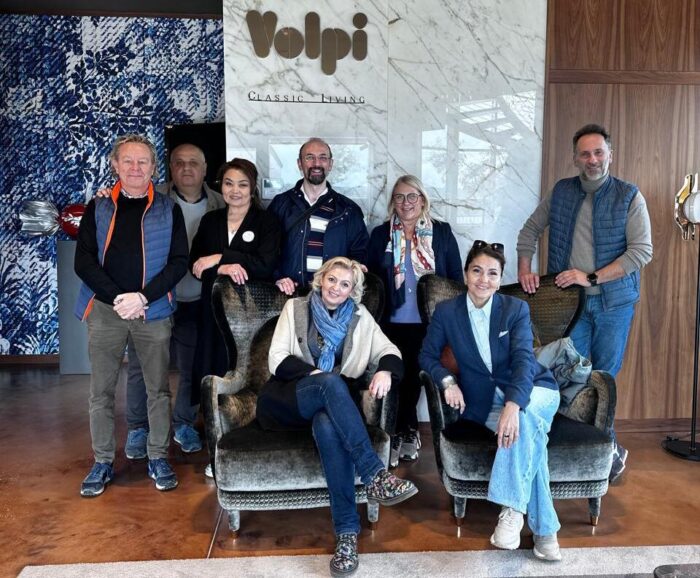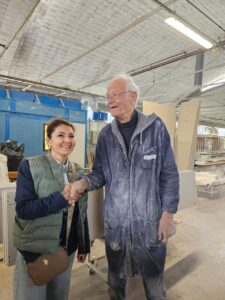ASTANA — As European companies seek more trade and economic cooperation in Central Asia, Kazakh and Italian business people are launching educational projects for furniture design, with Astana as a focal point for regional expansion. In an interview with The Astana Times, Karlygash Baibachenova, the founder of the only certified Academy of Furniture in Kazakhstan and

Karlygash Baibachenova. Photo credit: Karlygash Baibachenova’s Instagram account
president of the Guild of Furniture Makers of Kazakhstan, spoke about the beginning of a unique project to educate furniture designers in cooperation with Italian universities and companies.
According to Baibachenova, Italy is a leader and a trendsetter in furniture production and creative design, and partnering with it opens up new prospects for Kazakh specialists.
“Kazakh national identity and inner beauty, in collaboration with Italian trends and fashion, can create a unique style. That’s how we created the KazItaly brand. We were able to establish relations with our Italian colleagues, which is a very important step in the growth of our industry,” said Baibachenova.
The project, KazItaly, will be launched in Astana in January 2025. It is a joint initiative of the Guild of Furniture Makers, the Academy of Furniture and the Italian companies GIMO Group and Italy4East.

Kazakh delegation visits Italian luxury furniture production company Volpi. Photo credit: Karlygash Baibachenova’s personal archives
The project aims to create a practical academy and a personnel reserve for Kazakhstan’s furniture industry. The office in Astana will serve as a hub to unite graduates and professionals with top management skills who are capable of introducing new ideas and technologies.
“Kazakhstan lacks the necessary number of qualified specialists. For 30 years, we have learned to bring equipment and ideas from exhibitions, but there is no one to implement them,” Baibachenova said.

Karlygash Baibachenova with 86-year-old founder&owner of the Italian furniture production company. Photo credit: Karlygash Baibachenova’s personal archives
In her revelations about the last business trip to Italy at the end of April, Baibachenova shared that opening an office in Astana was not part of the plan. The initial mission of the Guild of Furniture Makers was to build a bridge between the two countries and send Kazakh students to Italy to study, work and gain experience.
“In Italy, we discussed many things, including our working and educational plans. We were so motivated, and I showed them our projects in Kazakhstan. They were pleasantly surprised. The result was their desire to open a joint office, which they offered themselves. This was not the purpose of our trip. We were together for a week, and I think they were impressed by our determination,” she said.
She explained that furniture designers are, in the first place, artists who need to have exceptional style. The project’s goal is to teach students to see art in their national identity and rich Kazakh history.
“This sense has to be through them to create a product with knowledge of the national code, identity, terms, canons, and history of art,” Baibachenova explained, noting that it is a skill to learn from Italian partners.
